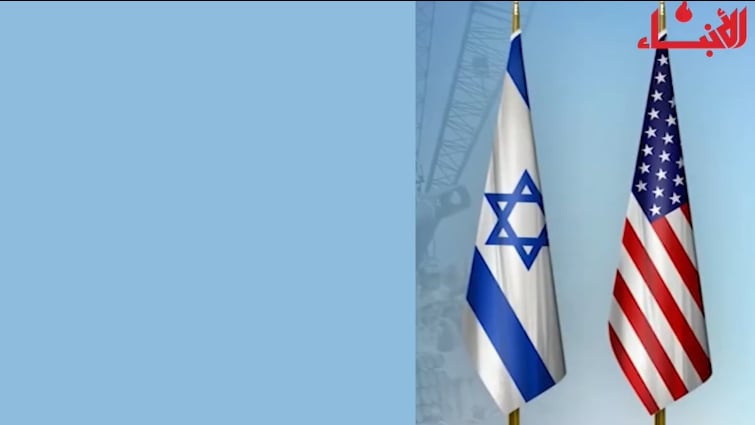By Satoshi Ikeuchi
We may be witnessing the End of the Middle East.
Needless to say, the Middle East never disappears. It will continue to exist and allure us.
An era, however, when the Middle East is the top priority and the biggest concern for the world powers, is almost over. New agendas from the East, such as AUKUS and QUAD are taking over the issues of Middle Eastern origin, such as terrorism, extremism, non-state actors and failed states. Those issues still exist and will continue to exist but expected to be gradually sidelined in the near future.
Right after the end of the Cold War era, the Middle East became the focal point of world politics and continued to be so for three decades.
On September 11, not in 2001 but in 1990, the then US President George H.W. Bush delivered a speech before the Congress, on his vision of building a “new world order” in the face of the Persian Gulf crisis. US victory on Iraq in the Persian Gulf war in the next year trumpeted the dawn of the era of the American hegemony.
Since then, major crises constantly kept originating from the Middle East and the sole superpower, the US, led the world in grappling with it.
After the September 11 attacks in 2001, George W. Bush, the son, declared the “war on terror” which was an overarching idea in the next two decades dominating the US defense and security policy which US allied nations, like it or not, had to be adjusted with.
For the US allies in Asia, such as Japan, Korea or Australia, it was imperative for them to involve themselves deeply in the Middle East to accompany and join hands with the US in their war on terror and reconstructions thereafter, in order to maintain its relationship with US, the ultimate guarantor of security. Their diplomatic and security policy revolved around the Middle East in the past two decades.
The Arab Uprisings in 2011 brew a fresh air into the region and drew different kinds of attention from the Western observers for a while. The civil wars and devastation which followed, however, brought a deep sense of disappointment and despair. The rise of extremism terminated the remnant of hope.
Now that the US army finally leaving from Afghanistan and Iraq within this year, the Middle East is increasingly away from the world’s concern. It could work for better or worse for the region. It can free it, gradually but steadily, from foreign intervention and contention, although it might effectively deprive many forces in the Middle East of their sources of income and influences.
Focal point of the world politics shifts toward the Indo-Pacific to which global and regional powers are making scramble.
US strategic shift to Asia and the wider area region has long been awaited by the US allies in Asia-Pacific, particularly Japan.
President Barack Obama called himself as “America’s first Pacific president” during his visit to Tokyo in November 2009, in his first year in office, though his pivot to Asia stalled in his remaining tenure, being caught in an aggravated quagmire of insurgency in Afghanistan, Syria and Iraq.
President Trump took up the agenda of reengagement in Asia as priority by enhancing the idea of Free and Open Indo-Pacific (FOIP) in his speech at APEC (Asia Pacific Economic Cooperation) summit in Da Nang, Vietnam in November 2017. FOIP was first advanced by Japan’s Prime Minister Shinzo Abe in the previous year which was incorporated into the terminology and grand design of US strategy countering Chinese expansion under the banner of the Belt and Road Initiative (BRI).
Mr. Trump, however, stopped short of following through this new approach when his presidential tenure abruptly ended under the shadow of the COVID-19 mass-infections and presidential election turmoil.
Finally in 2021, President Biden, after completing withdrawal at the end of August and bidding farewell to the war on terror in the 20th anniversary of September 11, put the entire pressure on Asia and the wider Indo-Pacific.
The surprise announcement of AUKUS on September 15 showed American determination and commitment to keep the balance of power in the Indo-Pacific against rising China, knotting a strong tie with UK and Australia, sharing technology and expertise to build nuclear-powered submarines, even at the risk of humiliating and alienating France which was blindsided by the new alliance of English-speaking triangle and felt particularly betrayed by Australia which unilaterally canceled the contract worth $66 billion, under which France was supposed to provide Australia with conventional submarines.
Still, even disgruntled France has no other option other than continuing to commit itself to this crucial region of the Indo-Pacific, along with its European neighbors such as Germany and Dutch, because that is the center of growth and geopolitics in the remaining century.
The Middle East was not the top agenda either in the G7 Summit meeting in Cornwall, UK, in June or in the UN General Assembly in September. President Biden met no Middle Eastern leaders publicly during his stay in New York in the occasion of his speech at UN on September 21.
Then the first in person summit meeting of QUAD, the Quadrilateral Security Dialogue took place on September 24 in Washington DC which included India and Japan side by side with Australia, now the crucial AUKUS component.
AUKUS is a game changer in tilting the military balance against China to the American favor, whereas QUAD is more leaning towards economic security in which standardization of the rules and regulations of the present order of free trade system and freedom of navigation are upheld in order to circumscribe day-by-day more assertive behavior of China.
A broad coalition of so-called “sea powers” or maritime nations is being formed, hedging Chinese expansion. China is countering with its means, such as SCO (Shanghai Cooperation Organization), basically a coalition of “land powers.” The Indo-Pacific, a vast area embraced by a dormant sea, is simmering with a heated geopolitical competition.





